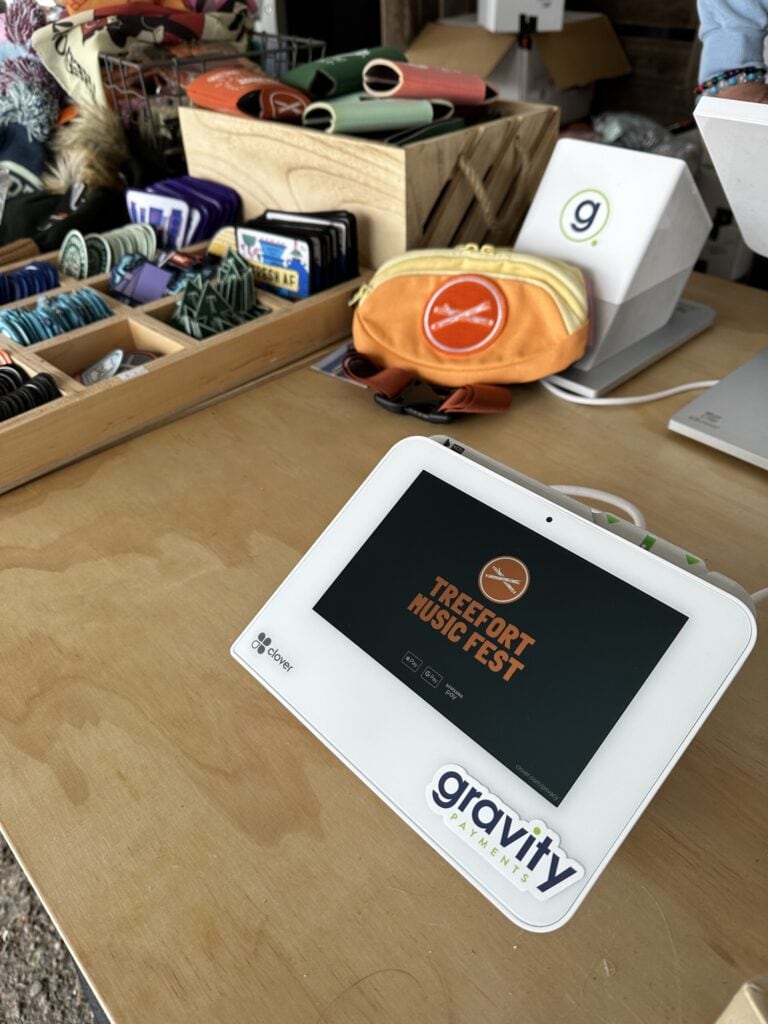
Rosita Barlow hates being bored.
“I’m kind of a workaholic. I don’t want to be bored at a job. I’d rather come in and have to work fifty or sixty hours because that’s going to really get me going.”
It was Rosita’s hatred of boredom that motivated her to chart her unique career path at Gravity. Since she started at the company almost twelve years ago, she’s worked in positions as varied as underwriting, customer service, operations, and sales management. Although these roles were vastly different from one another, they all had two notable things in common: 1) they kept Rosita busy and 2) they weren’t what Rosita thought she’d be doing when she started at Gravity.
It was July 2006 and Rosita had just graduated from Seattle University with a degree in finance. The economy was booming, but, unfortunately for Rosita, the jobs she was searching for were scarcer than she’d hoped. “At the time, everyone was in finance,” she says. “Everyone wanted to be a financial analyst, so there was a lot more supply than there was demand.” With the market so competitive and her student loans showing no signs of paying themselves, Rosita knew she needed to get a job–and fast.
Get the Gravity newsletter for the latest FAQs, tools, tips and tricks
During school, she’d been working part-time at a marketing agency doing a mix of finance and marketing work. But when the company offered her a full-time marketing position, she turned it down in an effort to find something more in line with her interests. She eventually found a posting for a full-time data-entry position at Gravity on, of all places, Craig’s List. The company was so small at the time that there was little-to-no information online, just a bare bones website with scant explanation about what the company did. But, Rosita reasoned, a job was a job.
The interview process shed a bit more light on what Gravity was all about. One thing that struck Rosita? The company was in growth mode. “They told me that ‘everyone is over 100% capacity and everyone is working over forty hours a week right now to try and get things done, and we’re a growing company.’” Sign me up, she thought.
Rosita got the job, but there was one problem: while everyone around her was working overtime, Rosita didn’t have enough to do. She was doing about twenty hours of work per week and desperately wanted to be doing more. She noticed that one of her colleagues, Dave Dreyer, would often return to the office at 5pm after a day out in the field. While Rosita was on her way home, Dave would end up spending the next two to three hours prepping for the next day. “How can I help you?” she asked Dave.
Dave worked as an installer for the company, which meant he spent much of the day installing POS systems for merchants in the area. When he wasn’t on an install, he was prepping for an install, which is why he ended up working so late most days.
With Dave’s help, Rosita trained herself on the install prep process, which not only helped streamline Dave’s day but also gave Rosita more to do. Unfortunately, it still wasn’t enough to keep her plate full. Off she went in search of more responsibility.
A few months after Rosita started, one of Gravity’s customer support reps left the company, and in the time it took to hire a replacement, Rosita stepped in to field calls from clients. Even after a new full-time customer support rep came on board, Rosita continued to serve as a backup, answering phones when the other rep was busy.
And, yet, she still wasn’t busy enough.
She approached her supervisor and asked for more to do and was subsequently put in charge of payroll. This was December 2006, just six months after she’d been hired. A few months later, she was put in charge of assessing risk for current client accounts as well. Shortly thereafter, the company hired someone to take on risk assessment full-time, and Rosita became that person’s manager–this in addition to all of the other work she was doing. She was finally at full-capacity, working about fifty hours a week, and loving every minute of it. “I loved being overworked,” she says. “I wanted as much as I could take, as much as I could absorb. In a very simple way, I was extremely motivated by having a lot of crap on my plate,” she says.
About a year into her tenure, Rosita moved into more of a managerial role, becoming an operations manager, which meant she was in charge of overseeing the customer service, installation, underwriting, and risk departments, which grew under her supervision. All the while, though, she had never given up her interest in finance. “Almost once a year, [CEO Dan Price] and I would have a conversation and he would be like ‘Do you want to stick to operations and managing people or do you want to go into finance?’” For several years, she told him she eventually wanted to transition into finance but she wasn’t in a rush.
To satisfy her curiosity, Dan gave Rosita some finance work to do, but then a funny thing happened. “I realized I wasn’t as good at finance the way that Dan was,” she says. “I knew what he wanted and needed out of someone who was going to be his go-to person, and I wasn’t that person.” After coming to terms with this realization, Rosita decided that she preferred to stay where she was, overseeing her direct reports and motivating them to stay engaged. “I got more attracted to what I was naturally good at and was moving away from what I thought I wanted.”
Over time, her title changed to Director of Operations and she started to manage more and more people. Around this time, Dan gave her a bit of advice she hadn’t expected. “He told me, ‘you need to find a way to make yourself expendable. A great leader is someone who can step away from the business, and the business functions.’”
Rosita set about making herself expendable by training more and more people in management and leadership roles, but soon her old nemesis–boredom–reared its ugly head. “I wasn’t feeling challenged anymore. I had these layers of bureaucracy, and you could remove me from these layers, and my layers didn’t need to exist. You didn’t need me. I was becoming a middle layer that was unnecessary.”
In 2013, Rosita started talking to Dan about next steps for her career. Although Rosita had zero sales experience and was reluctant to step into the role, Dan suggested she transition into sales management. The department had been suffering from a lack of inspiring leadership and was in dire need of a motivational kick–a challenge that fit directly into Rosita’s passion. “It kept coming back to I love working with people. I love empowering people. I love watching them develop and grow.”
It was far from an easy transition, demanding that Rosita not only learn the sales process–an area she previously had no interest in–but become a leader in a field that usually required experience. “As much as they had respect for me in operations, I knew there wasn’t going to be any respect for me in sales because I didn’t have proven experience in the field.”
Nevertheless, she persisted, inspired by her commitment to help people realize their true potential. “My motivation matched up with what the problem was. I love seeing people succeed. I love seeing people turn a corner. I love helping people in whatever way that I can. I love motivating them. I want people who work with me to be able to wake up and feel like this is where they should be, this is my career, and this is what I should do. Regardless of whether they give me recognition for it, I couldn’t care less. But if you work for me, and you can say that ‘I love my job. This is the hardest job I’ve ever had to do, but I’m willing to do the work to succeed,’ that’s important to me.” She says when she first started in sales leadership, few, if any of the people who reported to her felt this way. “A lot of them didn’t really care. A lot of them were angry. A lot of them had resentment toward the way they were treated in the past. So when I came in, all the walls were up. I don’t think it was a matter of me being able to do the sales job, it was a matter of I know how to turn these people around.”’
And she did. Working closely with as many individual sales reps as possible, she sought to understand their own motivations and trained them on how to use that motivation to succeed in their particular roles. “I try to be as specific as possible,” she says, working with people to not only identify areas of improvement but also big-picture goals for their careers.
Now, more than four years later, Rosita is thriving in her role as a sales leader, overseeing a team of nineteen direct reports, many of whom work remotely. Although she’s not sure if she’ll continue managing a team this large for the long-term, for now she content. But most importantly, she’s never bored.
by Brooke Carey, Content Editor
Interested in joining our team? Check out our Careers page for the latest opportunities.




